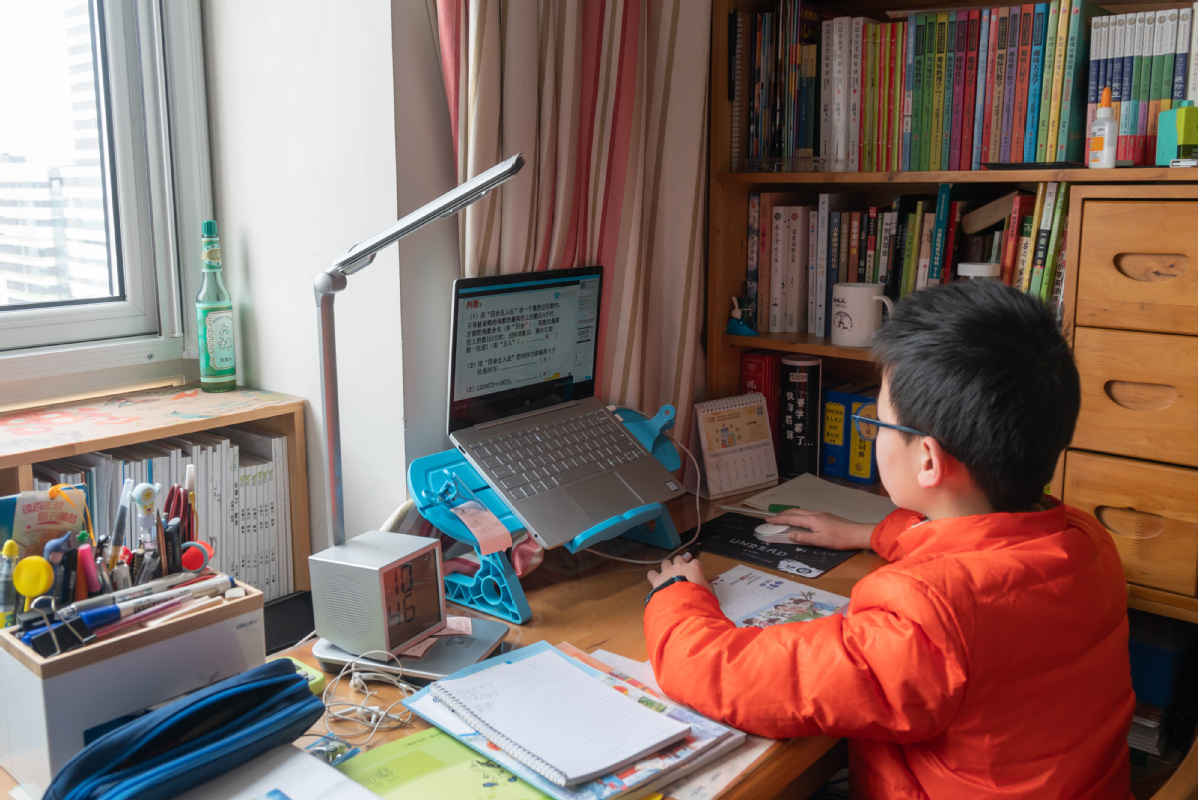Cost concerns put domestic online education enterprises in a tight corner


China's rapidly growing online education sector, which witnessed a flurry of fundraisings recently, is walking a tightrope on making profits and meeting the huge marketing costs needed for expansion, industry experts said.
Despite the general economic downturn due to the COVID-19 pandemic, online education has been one of the few growth areas in the country. During the first six months of the year, over 15 education startups including Yuanfudao, VIPKid and VIPThink conducted over 49 fundraisings, they said.
Total funds raised by the sector rose by 48.3 percent in the first six months on a yearly basis. In October, Yuanfudao, a Beijing-based online education startup, raised a whopping $2.2 billion from two financing rounds, making it one of the most valuable firms in the sector.
"The capital market has always supported online education companies as they are optimistic about the development prospects of the sector, which is essentially their estimation of the scale of a company in the field," said Zhou Feng, CEO of Net-Ease Youdao, the education unit of NetEase Inc.
Zhou said that compared with the combined 5-percent market share of offline education giants (TAL Education Group and New Oriental Education and Technology Group), leading online education companies now account for 50 percent of the total education sector.
"It means that the online education sector is far from reaching the zero-sum stage. It is still an incremental market and has great room for growth," he said. Zero-sum is a situation in which one person's gain is equivalent to another's loss, so that the net change in wealth or benefit is zero.
Zhou's comments came after experts expressed doubts that several online education startups are spending excessively on marketing activities to acquire more users. Such a move may lead to profit erosion and companies may end up being another Ofo, the bike-sharing startup that ran into financial problems.
"All online education companies are currently facing two difficulties-the decline in customer acquisition costs and the increase in continuation rates," said Yu Minhong, chairman of New Oriental.
"A renewal rate of 80 percent is a 'lifeline' for online education startups. Chinese online education companies are still exploring how to balance customer acquisition costs so as to form a closed business loop," he said.
Marketing costs of online education firms rose sharply on yearly basis during September and October of this year, said a top executive of a leading online startup who did not want to be named.
"The cost of acquiring customers for low-priced courses is set to rise by 20 percent to 30 percent during the second half of the year," he said.
"One reason for this is that a slew of industries such as e-commerce, gaming and automobiles are set to make a large number of investments during this period, especially during the Double Eleven Shopping Gala. Therefore, the bidding costs of online education startups will be higher," he said.
According to consultancy iiMedia Research, China's online education sector is expected to achieve a sales revenue of 485.8 billion yuan ($71.8 billion) this year, compared with 387 billion yuan in 2019. The total user numbers will hit 351 million by the end of the year.
"We believe that the industry will achieve a scale of tens of billions of dollars as more children are opting for online education, with learning mathematics skills a rigid demand," said Yu Dachuan, co-founder and president of VIPThink.
The company raised $180 million in its latest fundraising round last week. Led by SoftBank's Vision Fund 2, the fresh funding round attracted top investors like Sinovation Ventures and Enlight Growth Partners.
According to Yu, VIPThink does not rely on huge marketing expenses and has achieved positive cash flow for sustainable growth. The renewal rate of VIPThink has risen to 85 percent, he said.



































